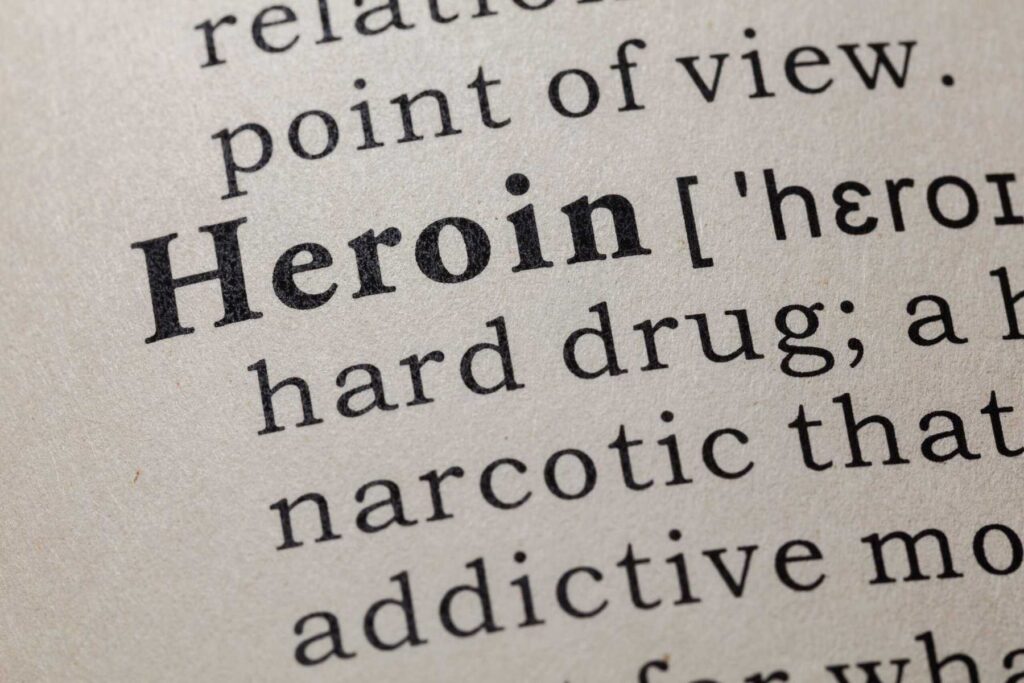Heroin abuse can quickly take hold of an individual’s life, leading to severe physical, psychological, social, and spiritual consequences. When attempting to break free from heroin addiction, the withdrawal process can be incredibly challenging and overwhelming.
By drawing upon the healing power of Christ for spiritual strength and guidance, individuals can detox from heroin abuse while finding recovery support, hope, and a path to a brighter tomorrow.
Heroin Addiction Overview
Heroin addiction is a chronic and severe substance use disorder that is characterized by an intense physical and psychological dependence on this illegal opioid drug. It’s derived from morphine, and produces a highly addictive rush of euphoria when it enters the brain.
Individuals who abuse heroin experience a range of negative consequences in their personal and spiritual lives, health, and overall well-being. Regular heroin use can result in financial difficulties, strained relationships with loved ones, losing faith in God and Christ, and a decline in job performance or loss of employment.
Additionally, long-term heroin abuse can lead to adverse health effects, including damaged veins and organs. Unfortunately, attempts to quit using heroin are extremely challenging without professional recovery assistance because of the intense cravings and undesirable withdrawal symptoms that appear when the drug’s effects wear off.
Why Is Heroin So Addictive?
Heroin is highly addictive because of its rapid interaction with the brain as it binds to opioid receptors, which are involved in feelings of pleasure and pain regulation. As heroin binds to these receptors, it triggers a surge of dopamine, a neurotransmitter associated with reward and reinforcement, causing an intense rush of euphoria.
The euphoria experienced creates a powerful psychological reinforcement of pleasure that causes individuals to experience cravings and want to experience these effects repeatedly. Over time, continued use alters the brain’s chemistry, making it difficult to function without being under the effects of the drug.
Signs of Heroin Abuse
Signs of heroin abuse can vary depending on the individual but often include:
- Physical symptoms: Drowsiness, sedation, constricted pupils, slowed breathing, and slurred speech.
- Behavioral changes: Sudden mood swings, increased secrecy or dishonesty, and neglecting responsibilities and relationships.
- Social withdrawal: Individuals addicted to heroin isolate themselves from friends and family members as heroin use becomes their primary focus.
- Neglected appearance: A decline in personal hygiene is another sign of heroin abuse.
- Financial Issues: Individuals often experience financial difficulties from spending money on the drug rather than fulfilling their financial obligations.
- Neglected faith: Heroin addiction can lead individuals to turn away from their religious and spiritual beliefs, ignoring activities and practices that were once important to them.
Short and Long-Term Effects of Heroin Abuse
Heroin abuse has numerous short and long-term effects on the individual that affect their mind, body, and spirit.
Short-Term Effects:
Mind:
- Euphoria and intense pleasure
- Altered perception of pain and emotions
- Cognitive impairment, difficulty thinking and making decisions
- Confusion
- Impaired judgment
- Increased risk-taking
Body:
- Nausea and vomiting
- Itching, sores, and skin infections
- Slowed breathing
- Slurred speech
- Drowsiness
Spirit:
Heroin abuse often leads individuals to disconnect from their spiritual beliefs or practices, causing them to feel detached from God and Christ and lose touch with their sense of spirituality. Their drug addiction can also disrupt an individual’s moral compass, leading to a loss of values and purpose in life. This can result in feelings of emptiness, guilt, and shame that diminish one’s spiritual identity.
Long-Term Effects:
Mind:
- Chronic brain fog
- Impaired memory, attention, and concentration
- Increased risk of developing mental health disorders
- Intense cravings for heroin
Body:
- Respiratory infections
- Liver damage
- Kidney failure
- Gastrointestinal issues, including constipation and bowel dysfunction
- Increased susceptibility to infectious diseases
- Lowered immune system functioning
- Scarring, tissue damage, and open sore and wounds
Spirit:
- Abandoning one’s spiritual beliefs
- Discontinuing all religious activities
- Increased feelings of guilt, shame, and spiritual suffering
- Loss of purpose and meaning in life
- Feeling forsaken by God and Christ
In addition, some individuals may find themselves questioning the meaning and purpose behind their actions as they strive to satisfy drug cravings at the expense of everything else. Furthermore, heroin abuse can make individuals more vulnerable to negative influences or experiences that contradict their beliefs.
Heroin Withdrawal
The duration and severity of heroin withdrawal symptoms depend on various factors, such as the individual’s level of dependence and frequency and amount used. Physical withdrawal typically begins within a few hours when the effects of the drug wear off.
They can include flu-like symptoms, abdominal cramping, elevated heart rate, chills, sweating, fatigue, and muscle aches and pains. There are also psychological withdrawal symptoms that will occur, such as cravings, irritability, anxiety, depression, and restlessness.
Heroin Detox and Treatment
Heroin detox is the first step to recovery to remove the drug from the body while managing withdrawal symptoms. Supervised detox programs often include medication-assisted treatment (MAT) to help alleviate and manage the more intense withdrawal symptoms.
Personalized detox plans often include evidence-based, holistic, and spiritual therapeutic methods to restore the mind, body, and soul, such as individual and group therapy, educational courses, mindfulness practices, exercise, nutritional counseling, and faith-based recovery classes.
“No temptation has overtaken you that is not common to man. God is faithful, and he will not let you be tempted beyond your ability, but with the temptation, he will also provide the way of escape, that you may be able to endure it.” (1 Corinthians 10:13.)
Restore Your Faith and Overcome Heroin Addiction in Nashville
When you are struggling with heroin addiction and questioning your faith, you are not alone. At Spring 2 Life Recovery in Nashville, Tennessee, we will walk hand-in-hand as you begin your recovery journey. We offer faith-based treatment programs personalized to your physical, mental, and spiritual needs.
Contact us today to discover the healing power of Christ and a brighter future free from the grips of heroin.





